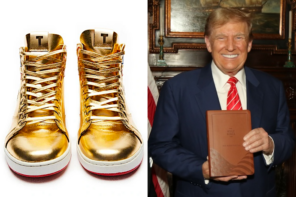The Trayvon Martin murder, the acquital of his killer, and the incarceration of Marissa Alexander are all messages that convey America’s disregard for the inherent worth of black and brown bodies.
Following the Zimmerman acquittal, black religious institutions were filled with crushed souls desiring to hear sermons of reassurance regarding their inherent value in the sight of God, to collectively mourn with their respective communities, and to hear a plan of action.
But not every black person wanted to rush to the altar. Wallace Best, a preeminent historian at Princeton University, did not attend church after the Zimmerman Verdict. In a recent op-ed, “The Zimmerman Verdict and the Black Religious Left,” he argued that prayer and church attending were “weak and impotent responses.”
So instead of going to church Best was, as he explained, “… at home frustrated by the inability of those spaces—deeply conservative as many of them are—to truly bring about social and political change.”
I do not agree with Best and, in fact, I think indulging in personal frustration at home about other people’s responses is more of an impotent reaction to injustice than praying at an altar.
I want to push against Best’s reductionist description of black religious congregants who, in his view, do the ‘same old, same old’. Simultaneously I want to argue against his reductionist perspective of the black religious left that suggests that we, as black liberal academics, are the only ones who can provide politically potent responses and “recover the culture of complaint and critique,” and against his implicit description of the black religious left as being constituted primarily by black liberal academics.
I want to argue that we need to have a more expansive understanding of black religious identities, an understanding that Womanist Theologians have already pushed us toward, an understanding that does not compartmentalize black religious thought and responses into shallow categories like “right/conservative/prayerful” and “left/academic/protester”; categories that are too small, too static, and too constricting for us to comprehend the diversity of black religious lives and black political activity.
When we rid ourselves of these categories, we open spaces for understanding black people who are “both/and”; who protest through prayer and pray while they protest.
In his piece, Best remarked with approval on two editorials that appeared here in RD in the aftermath of the Zimmerman verdict, one by religious studies professor Anthea Butler and the other by theologian J. Kameron Carter.
Butler, with keen historical insight, invoked the late and under-appreciated William R. Jones, and took the “White American god” to task in proper Epicurus fashion by asserting, “I know that this American god ain’t my god. As a matter of fact, I think he’s a white racist god with a problem. More importantly, he is carrying a gun and stalking young black men.”
While Carter, with theological precision, extended Butler’s position by calling for a Christian atheism against this White American god by “… calling for a Christianity whose animating logic is no longer tied to that false ‘god-man.’ The ‘god’ of (or that is) whiteness is a god toward which we must be thoroughgoing atheists and religionless.”
As a budding black religious intellectual, I adamantly agree with both Butler and Carter, but where I draw the line is when Best responds by suggesting that they, as black religious academics, are the only ones providing politically potent responses, while prayer altars are idle symbols of black people’s habit of wasting time in the face of injustice.
I grant that there are some black religious people who believe prayer without action, without protest, without works, works. His position on the weakness of prayer is not new. Zora Neale Hurston described in her essay on religion in Dust Tracks on the Road that she believed prayer was a sign of weakness and therefore has accepted the terms of the universe. But not everyone has. There are some who believe prayer actually affords strength to the enfeebled. Even Dr. Martin Luther King, Jr. felt weak, bowed over a cup of coffee at midnight and “prayed a prayer… out loud that night.”
Praying does not imply political ineptitude, just as being black, left, and academic does not equal the prioritization of black suffering, politics, or solidarity.
Contrary to the American imagination, and one that Best perpetuates, black parishes, mosques, and temples are institutions that house numerous, conflicting political ideologies and religious perspectives. In fact, it is very likely that someone was crying on the altar Sunday and protesting with the Dream Defenders the following day.
I also agree with Best that there were meaningful responses from scholars like Butler and Carter, but there were also equally meaningful responses from “conservative” pastors like Bishop T.D. Jakes and Jamal Harrison Bryant, who helped to contribute to what Best calls the “… the culture of complaint and critique.”
I do not always agree with the politics and social rhetoric I hear from the pulpit, just as I don’t always agree with every idea in an academic text. But black religious thought, from the academy to the parish, from the liberally inclined to the more conservatively aligned, will cease to be meaningful if we keep creating shallow categories that constrict blackness to an “either/or” paradigm. Womanist ethicists like Traci West have shown us that it is possible to preach and protest, to worship and resist; Emilie Townes has taught us that spirituality can and does serve as a social witness.
There is enough room for a prayer altar, a picket sign, and a bookshelf.
And if you need to pray to re-energize yourself to fight against the rampant injustices plaguing black people, then I will meet you at the altar.




